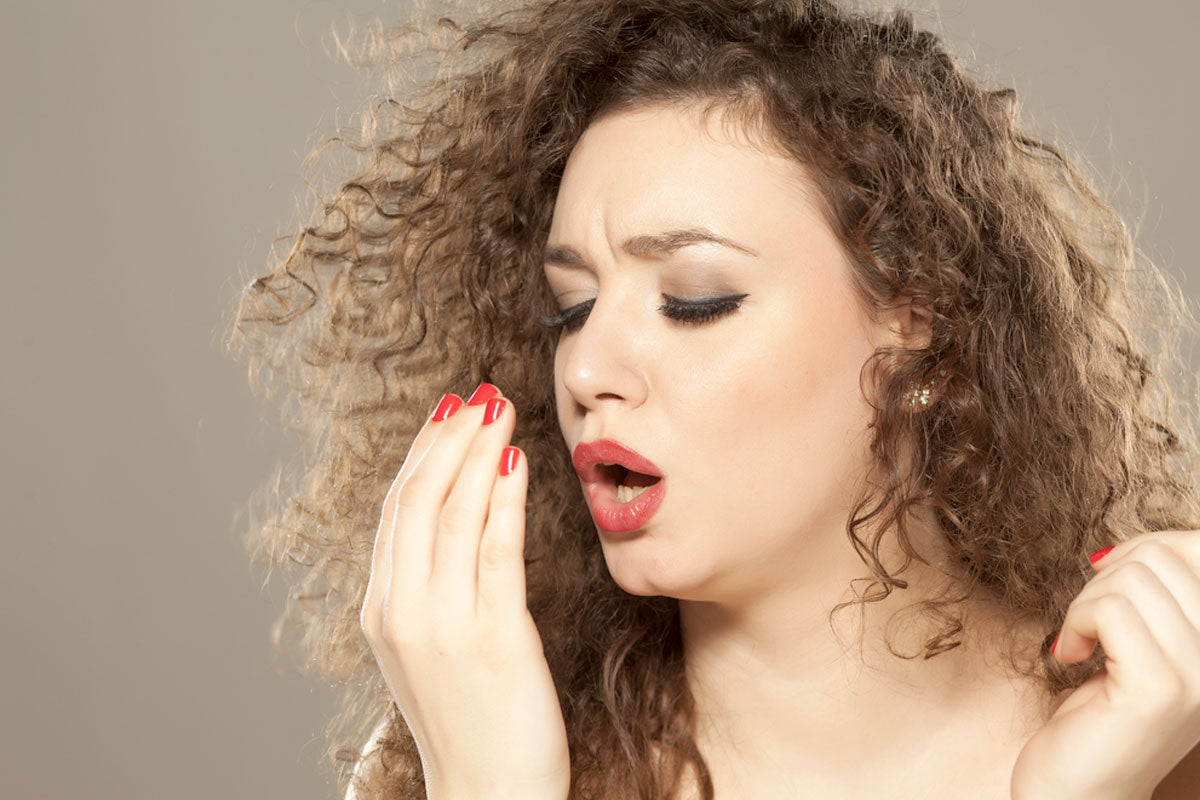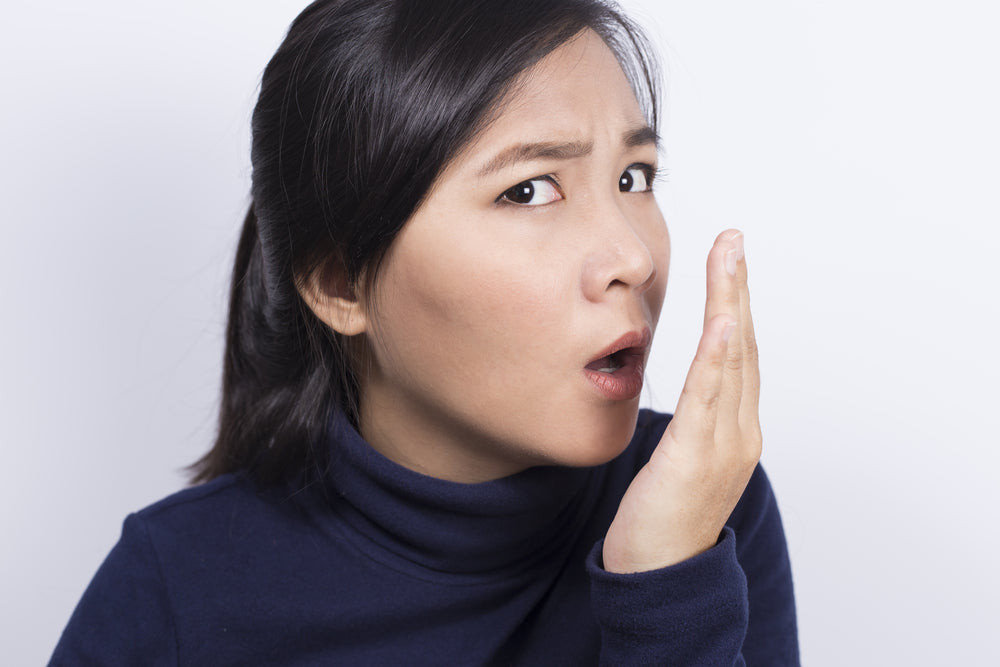Your car eases up slowly to the drive-thru window…
“Yes, hello. Can I get an iced double sugar-free vanilla mocha soy frappe latte machiatto, please?”
Whoo! All that sugar and flavoring might sound tasty (maybe…), but how is it affecting your breath? And is it taking a toll on your social life? Let’s take a closer look at the ultimate source of bad breath…
Where Bad Breath Begins
The main cause of bad breath is VSCs, also known as “volatile sulfur compounds.” These are basically gases produced by the bacteria in your mouth. The more bacteria you have flourishing in your mouth, the more VSCs are being produced (on a molecular level).
Dry Mouth = Bad Breath
Interestingly enough, your saliva actually helps to fight harmful bacteria in your mouth. Mostly because it is packed with oxygen, and those little buggers hate oxygen. So the drier your mouth becomes, the more bacteria can thrive. This is one reason why alcohol-based mouthwashes can actually make your breath worse over time … because they dry out the ecosystem of your mouth.
The Complication of Caffeine
As you may already know, caffeine dehydrates your body, and that can lead to less saliva being produced. Saliva also helps to digest food particles in between your teeth and lingering in your mouth. Less saliva means a greater chance that your lunch might hang out for a bit longer than you expected. The remedy? If you do drink some brew, make sure to stay hydrated throughout the day in order to keep your saliva levels high!
The Not-So-Sweet Side Effect of Sugar
Remember that bacteria we talked about? The ones that produce all of those “volatile sulfur compounds?” Well they crave sugar. They need it to survive. It’s miracle grow to them. And the more sugar in your diet (and lingering in your mouth), the more this bacteria multiplies and spreads. So if you do decide to add those extra flavorings (and whip cream of course), it’s a good idea to rinse out your mouth with water once you finish your drink. This will help keep oral sugar levels low.
The Beans Carry an Odor of Their Own
Sometimes what you are smelling is simply the strong odor of coffee itself. That is natural. The simplest solution is to use a non-alcohol based mouthwash (particularly one with a patented formula that reduces VSCs on a molecular level). _x0001F609_
So What Can You Do?
- Stay hydrated
- Minimize the coffee (consider switching to an instant reishi or dandelion blend; they often taste very similar to coffee and come with their own health benefits)
- Reduce the sugar
- Rinse out your mouth with water once your drink is finished
- Use a non-alcohol based mouthwash to knock out the VSCs
Let’s Hear From You!
Comment below: what is your favorite coffee / tea drink?




